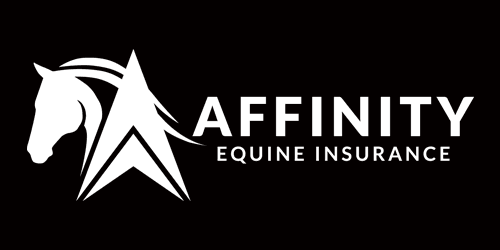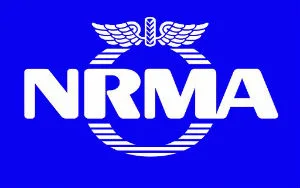You can either get horse float insurance with normal caravan and trailer insurance policies or as specialised cover. It can cover you for accidental and intentional damage, fires, storms, floods, theft and more.
Who offers cover for horse floats?
*Always check the Product Disclosure Statement before getting a new policy. Table last checked August 2024.
What’s included in horse float insurance?
There are a few types of insurance to consider. Firstly, your compulsory third party (CTP) policy that you have on your car will also extend to your horse float. This means that if you get into an accident and hurt someone or yourself, you're covered for the costs that arise from that. It's important to note that this type of insurance only covers people, not property. So if your horse float is damaged in the accident, it won't be covered by this type of insurance.
To be covered for damage to your horse float, you'd need comprehensive insurance for it. Horse floats are typically covered under caravan or trailer insurance policies. Check with your insurer when you get quotes to be sure. With this type of policy, you'll be covered for things like;
- Accidental damage
- Storm or flood
- Fire and theft
- Earthquakes
- Emergency expenses
- Towing costs
- Contents
- Legal liability
Exclusions, limits and conditions
If one seemingly equivalent policy is a lot cheaper than another, it might be because there are specific exclusions, limits or other conditions which affect the cover. These define policies as much as the inclusions do.
Limits and conditions to be aware of
The main limit is your sum insured or the current market value of your horse float. You will not be able to claim more than this amount for the trailer in the event of a total loss. With trailer policies, you can often choose either market value or sum insured, while equine insurance might only give you market value.
- Market value. If you choose this option, your insurance will pay out the market value of your float at the time of the loss, subject to depreciation at standard rates.
- Sum insured. With this option, you agree on the value of the trailer ahead of time, and may claim this amount in the event of a total loss.
The preferable option depends on a range of factors, including what kind of float you have, whether it has any special features or aftermarket additions and how well you maintain it. Often, professionals will insure at an agreed value.
- Any company branding, special features or similar features may not count towards the market value of the trailer.
- A well-maintained horse float might not depreciate as quickly as the market value indicates.
- With market value, the insurance payout might not be enough to get the equivalent replacement trailer you need.
Specific types of cover will have sublimits you need to pay attention to. For example, you might not be able to claim more than $500 for the contents of a trailer regardless of how much they are worth. With liability cover, the limits are usually in excess of $20 million or more.
Specific conditions will often apply for payouts. For example, you may not be able to make a claim for emergency accommodation unless you’re more than 100km from home at the time. There also may be specific conditions regarding which parts and equipment are covered.
How much does horse trailer insurance cost?
The cost of a policy depends on your location, the type of cover and the value of your horse float. Based on your answers, the insurer will determine how risky it is to insure you and base your premium off this.
Your risk is determined based on a combination of how likely you are to make a claim and how much it will cost if you do. As such, it can be affected by the following:
- The overall value of your trailer and whether you’re covering it at market value or at an agreed sum. Market-value insurance policies are generally cheaper because the amount that the insurer has to pay out for a total loss decreases over time. The other types of cover you have included will also have an effect.
- Whether you are under 25 or otherwise qualify as an inexperienced driver since you are statistically more likely to have an accident.
- How comprehensive your cover is and what you are able to claim. Higher-level cover carries higher premiums.
How much cover do I need?
Finding the right policy is about balancing cost and cover. Policies need to be affordable, but should also deliver appropriate cover for your needs. Generally, you should have enough cover to make sure that you’ll be able to replace the float in the event of a total loss.
You may also want to consider the following:
- Does your income depend on it? If you need your horse float to earn a living, it is a good idea to make sure you can keep on earning even in the event of a total loss. Insuring at an agreed value and making sure you have comprehensive cover will generally cost more, but might be well worth it.
- Where and when you’ll be using it. How and where you tow the horse float will affect the types of risks you encounter. You might want to prioritise cover for the more likely hazards.
- What kind of excess you can afford. This can make a significant difference to your premiums, and it may be worth opting for a higher excess if you think you’re unlikely to make a claim.
Taking steps to maintain your float (wear and tear damage isn’t covered) and extend its lifespan will help limit your claims. If your horse float or trailer isn’t in good condition and you aren’t taking appropriate care of it, insurers may reject your claims.
FAQs
Sources
Ask a question
More guides on Finder
-
Mobile phone use while driving statistics – Australia
Drivers who text are 10 times more likely to crash yet a large number of Australians still do it.
-
Cheap Car Insurance Australia
Here's a guide to getting affordable car insurance that will still cover the essentials.
-
ROLLiN’ car insurance review
ROLLiN' is an IAG-backed car insurer offering a flexible comprehensive plan that's refreshingly free from faff.
-
Do demerit points affect your car insurance?
Your guide to demerit points and how they affect your car insurance.
-
Bank of Queensland Car Insurance Review
Bank of Queensland car insurance offers three levels of cover, flexible premium payment options and a lifetime guarantee on repairs.
-
Hume Bank Car Insurance Review
Hume Bank Car Insurance, issued by Allianz Australia Insurance Limited, provides three levels of cover, a wide range of benefits and the peace of mind that comes with 24/7 claims support.
-
Youi car insurance review
Youi specialises in offering car insurance policies tailor-made to suit the needs of different customers.
-
Car insurance for under-25s
Discover the steps to get affordable car insurance if you are under 25.
-
Best Car Insurance Australia
Explore our analysis and see how you can find the best car insurance for your needs.
-
Comprehensive car insurance in Australia
Compare cover from a range of car insurance providers and find out some of the things you will be covered for under a comprehensive policy.





